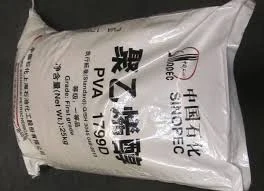The Perfect Adhesive for Tile A Comprehensive Guide
When it comes to tiling projects, choosing the right adhesive is just as important as selecting the tiles themselves. An adhesive not only ensures that tiles adhere securely to various substrates but also affects the overall longevity and appearance of the tile installation. With numerous options available in the market, understanding what makes the best adhesive for tile is crucial for both DIY enthusiasts and professionals alike.
Understanding Tile Adhesives
Tile adhesives come in various forms, but they can primarily be classified into three categories thin-set mortar, mastic, and epoxy. Each type has its unique properties and is suited for different applications.
1. Thin-Set Mortar This is the most commonly used adhesive for tile installation. It is made from a mixture of cement, sand, and water-retaining agents, providing a robust and durable bond. Thin-set mortar is ideal for both ceramic and porcelain tiles, as well as natural stone tiles, when installed on floors and walls. It is suitable for interior and exterior applications, making it versatile for various projects.
2. Mastic Often favored for wall tile installations, mastic is a pre-mixed adhesive composed of organic compounds and is known for its ease of use. It is ideal for bathroom and kitchen walls, but it should not be used in wet areas like showers or pools due to its susceptibility to moisture degradation. Therefore, while mastic provides a strong bond, its limitations must be carefully considered depending on the project.
3. Epoxy For those looking for an exceptionally strong adhesive, epoxy is the go-to option. Composed of a resin and hardener, epoxy offers outstanding durability and resistance to water, chemicals, and heat. It's excellent for spaces that require high strength or are exposed to moisture, such as commercial kitchens and bathrooms. However, its higher cost and application difficulty make it less popular for DIY projects.
Factors to Consider When Choosing Tile Adhesive
adhesive for tile

When selecting the right adhesive for your tiling project, consider the following factors
1. Tile Type The material of your tiles determines the adhesive you should use. Porcelain and ceramic tiles often use thin-set mortar, while glass tiles may require a specialized adhesive. Always check the tile manufacturer’s recommendations.
2. Substrate The surface onto which you are tiling plays a critical role. Concrete, cement backer board, and drywall each have different adhesion properties. For instance, thin-set mortar performs well on concrete, while mastic may be suitable for drywall.
3. Environment Consider whether the tiled area will be in a wet, dry, or high-traffic environment. Areas prone to water exposure, like bathrooms and kitchens, require moisture-resistant adhesives such as thin-set mortar or epoxy.
4. Installation Method The ease of application can vary depending on the adhesive. Thin-set mortar is generally recommended for professionals, while mastic may be more user-friendly for DIY projects.
5. Cure Time and Working Time Depending on how quickly you want to work and the time required for the adhesive to set, you should choose accordingly. Thin-set mortars can have varying cure times, while mastic allows for easier adjustment during installation.
Conclusion
Choosing the best adhesive for tile installation is critical for achieving a long-lasting, professional-looking finish. Understanding the different types of adhesives and the factors that influence their effectiveness can greatly enhance your tiling project outcomes. With proper selection and application, you can ensure that your tiles will endure the test of time while adding beauty and value to your space. Whether you're a seasoned professional or a weekend warrior, investing time in understanding tile adhesive will reward you with successful installations time and time again.
-
Rdp Powder: Key Considerations for Wholesalers in the Building Materials IndustryNewsJul.08,2025
-
Key Considerations for Wholesalers: Navigating the World of Hpmc - Based ProductsNewsJul.08,2025
-
Hpmc Detergent: Key Considerations for WholesalersNewsJul.08,2025
-
Key Considerations for Wholesalers: China Hpmc For Tile Adhesive, Coating Additives, Concrete Additives, and MoreNewsJul.08,2025
-
Crucial Considerations for Wholesalers: Navigating the World of Construction MaterialsNewsJul.08,2025
-
Key Considerations for Wholesalers Sourcing Additive For Cement, Additive For Concrete, Additive For Putty from Additive Manufacturer Shijiazhuang Gaocheng District Yongfeng Cellulose Co., Ltd.NewsJul.08,2025




